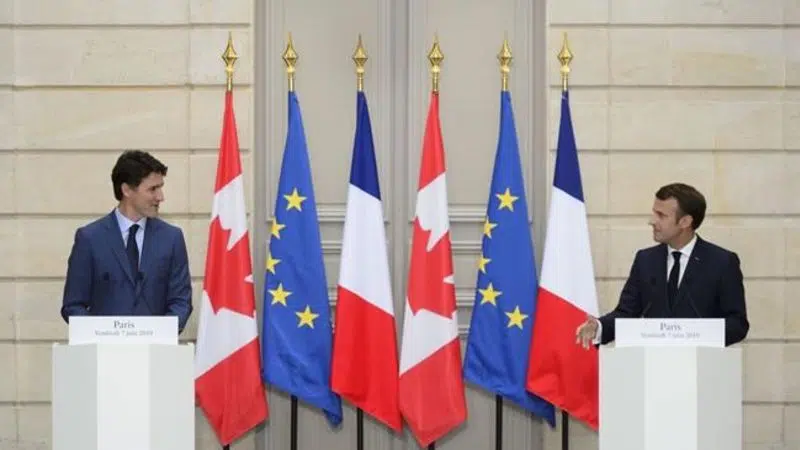
Brewing battle over future of NATO creates minefield for Canada
OTTAWA — A brewing battle over the future of NATO could have major implications for Canada, which for decades has relied on the military alliance as a cornerstone of its security, protection and influence in the world.
Prime Minister Justin Trudeau is expected to travel to London next month where recent comments by French President Emmanuel Macron questioning the viability of the alliance threaten to overshadow a celebration of NATO’s 70th birthday.
Macron, in an interview published in the Economist magazine, warned that NATO, which was established at the start of the Cold War to protect the democracies of North America and Western Europe from the Soviet Union, was suffering from “brain death.”
The French president specifically cited the recent U.S. military withdrawal from northeast Syria and Turkey’s subsequent invasion of the area — both without any consultation with fellow NATO members — as examples of a breakdown in the alliance.
